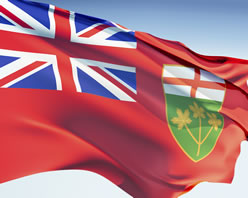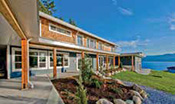Wife Looking for Sex Addiction Treatment for Husband
Gina* contacted us looking for support resources after she caught her husband, Derek*, cheating. It wasn’t just like a one time thing; Gina believes it’s a compulsion. Derek is currently going to Sex Addiction meetings in Toronto and trying to do what he can for himself. We recommended Gina to contact JACS and get more information about their support groups for affected family members and loved ones. We also suggested she consider seeking counselling. This was something we focused a lot on. Ideally, Gina should seek out a therapist that will work with her and Derek as a couple after she gets a few sessions to deal with her own mental health. Because Derek does not also have a known substance issue, if Gina is looking for treatment she will need to find treatment programs that deal with behavioural or evidence-based practices. Some programs like this include: SCHC, Life-Science, Bellwood, and CAMH. Attending counselling is a good first start as it is a far more affordable option and treatment can always take place afterwards if necessary and recommended by their therapist. Questions to ask potential therapists/counsellors: What is the cost (per session, etc.)? Do you do couples’ sessions? Will you seen me on my own first then with my husband? We suggested Gina let Derek continue attending Sex Addicts Anonymous. Here is a link to Sex and Love Addicts Anonymous’ meeting schedule and locations in Toronto: http://www.slaa-ontario.org/ Here are two other support groups for sex and love addiction SLAA Toronto Intergroup 300 Coxwell Ave. Box 22514 Toronto ON M4L 2A0 Ontario Toll-free: (877) 486-8201 Email: info@slaa-ontario.org Sexual Compulsives Anonymous in Toronto A 12-Step fellowship that is inclusive to all sexual orientations and open to anyone with a desire to recover from sexual compulsion. SCA is a spiritual program that provides a safe environment for working on problems related to sexual compulsion and sexual sobriety. If neither counselling nor meetings seems to resolve the issues between Gina and Derek, we asked her to call us for additional resources. Because Derek does not have apparent substance abuse issues, he will benefit most from a program that is evidence-based and is experienced in dealing with behavioural and process addictions. There are only a handful in Ontario and Canada that would be worth considering. Resource groups for affected family members JACS – Jewish Addiction Community Services Email: info@jacstoronto.org Website: www.jacstoronto.org JACS TORONTO 858 Sheppard Ave. W. Toronto, ON M3H 2T5 Phone: (416) 638-0350 Fax: (416) 628-2211 JACS THORNHILL #13 – 1118 Centre St. Thornhill, ON L4J 7R9 Phone: (905) 886-0350 Note: Assessment and outpatient services for men, women, youth, and families. Here is also a list of “outpatient” options for Gina and Derek, which will provide mental health and addiction help mostly through OHIP contracted agencies: http://www.sunshinecoasthealthcentre.ca/toronto-rehab.html#govt RESOURCES FOR SEX ADDICTION Here is a link to all the sex addiction resources for Canada (e.g. therapy, meetings, treatment programs): http://www.canadadrugrehab.ca/Sex-Addiction-Treatment.html Here is a list of therapists from the link above practicing in the Toronto area: Barrett, Michael F. Ph.D. 25 Harbord Street Toronto, ON Phone: (416) 978-3488 Note: ABS Certified Sex Educator Burgoyne, Robert, MSc., MSW, RSW 661 Carlaw Ave. Toronto, ON M4K 3K6 Phone: (416) 436-9205 Email: robert.burgoyne@sympatico.ca Note: Relationship and Sexual Counselling. Registered Sex Therapist. Campbell, Bonnie – BA, DCTP, CAPT Spadina Therapy Centre 37 Spadina Road Toronto, ON M5R 2S9 Phone: (647) 977-5918 Note: has expertise in the treatment of unproductive behaviours like excessive drinking, drug abuse, eating disorders, or sexual addiction. Golden, Judith – BSW, M.Ed., RSW 118 Eglinton Ave. W, Suite 210 Toronto, ON M4R 2G4 Phone: (416) 485-4073 Note: works in all areas of human...
Ontario Residential Treatment Options Explained
This is a brief explanation of the differences between the three treatment types. There will be a mix of government, private and charitable options. Private You can choose any facility you wish. The average cost of private treatment is roughly $5000 – $15000 for a 30-day program. The benefit of paying privately is that clients are typically admitted right away. Some facilities are equipped to do detox on site, while others will require you to detox/withdraw prior to admittance. Benefits: more 1-on-1 counselling, the ratio to staff to client is higher (i.e. unique clients needs are given more attention), and there is usually an aftercare and family program. Charitable You can also choose to get treatment from a charitable place anywhere is Canada. Typically charitable options are programs run by organizations like Salvation Army, United Way, and church groups. These groups do fundraising to help offset the costs of treatment. Typically clients have to be anywhere from 5 to 10 days sober. These programs usually cost under $5000/30 days of treatment (anywhere from $400 – $1240). There are often wait lists for these program, which can vary from 1 week to 1 year to get admitted. Benefits: Cheaper cost for long-term programs (30-180days and sometimes 1 year). Government Most government treatment programs are free. Generally, you can only go to government treatment in the province you have valid health care for. Although it is covered (not including prescriptions), the wait lists are long and there is a certain procedure you must do for getting into treatment. First, a person must have an assessment completed (usually by a drug and alcohol counselor at the local Mental Health and Addictions office). Once the assessment has been done, the counsellor can start to refer that person into provincially-funded or -sponsored treatment programs. At this point, he or she would wait until their intake date comes up. In the meantime, he or she can go to detox, attend local AA/NA meetings, and/or receive outpatient counselling (more intensive than meetings, less than rehab). Government treatment programs are typically 18-30 days, do not usually have weekly 1-on-1 counselling, and do not have aftercare or family programs. Because so many people are trying to access treatment services, government programs need to move people through treatment quickly so everyone can receive some basic tools for a sober and clean life. When researching treatment options, here is a set of questions we recommend everyone ask. These questions will you figure out which treatment center and its programs are going to be the right fit. PROGRAM TYPES EXPLAINED Here are links and/or descriptions to different treatment program modalities. 12-step programming Holistic Treats the person as a whole using 12-step fundamentals as well as current evidence therapies, such as CBT (cognitive behavioural therapy), REBT (rational emotive behaviour therapy), Mindfulness, Narrative therapy, etc. Evidence-based Uses evidence-based therapies only, such as CBT, BPS+S (biopsychosocial + spiritual), EMDR, REBT, and/or any therapies that have been proven to have success in treating addiction through various research studies. Christian/Spiritual Faith-based programs that help clients find salvation in the Lord. They also, sometimes, use 12-steps or their own form of programming. GOVERNMENT TREATMENT We recommended all Ontario residents looking for addiction treatment keep the Ontario Drug and Alcohol helpline number handy (1-800-565-8603). This is a 24-hour hotline for Ontario Health Insurance. This is how residents can go about getting government treatment for themselves or loved ones. We recommend, if you do call, asking for the following four pieces of information: Initial assessment facilities David cannot get government treatment without being referred. In order to get a referral to a public program...
Welcome!
Hello and welcome to the Toronto detox blog. This blog and many others are operated by www.canadadrugrehab.ca; an organization of specialists who talk to people every day by phone and email to help them find the addiction treatment and support they need for themselves or loved ones. That being said, we know there are many more people out there that we can help. For those who we are unable to communicate with directly by phone or email, we will be posting regular blogs detailing situations of callers across Canada and the resources we provided them so they have the resources to deal with their unique situation (names and personal information will be changed or removed to protect privacy). Each person’s situation is different and the links and information we give is tailored to that individual and their specific needs. We hope you will be able to identify with some of the people in these excerpts and find the provided information helpful in your own search for treatment options. For more personalized help in finding addiction treatment, please contact us at 1.877.746.1963 or info@canadadrugrehab.ca. There is no cost for connecting with us. CDR is a public service with a mission to help individuals and families struggling with addiction in Canada find treatment and other resources that will help them develop improved, more fulfilling lives....



